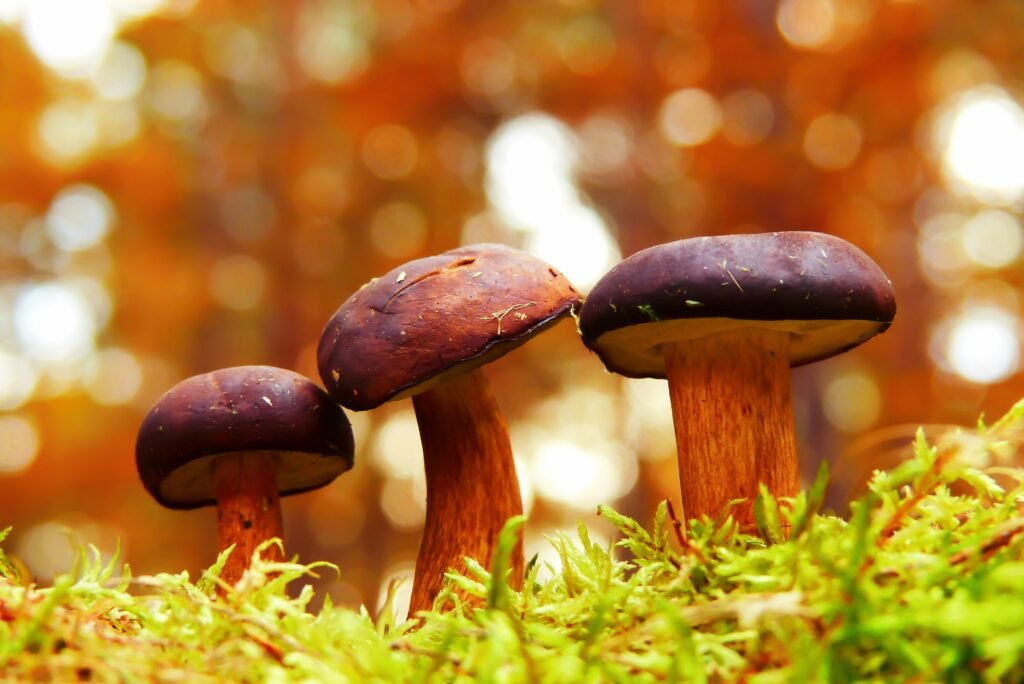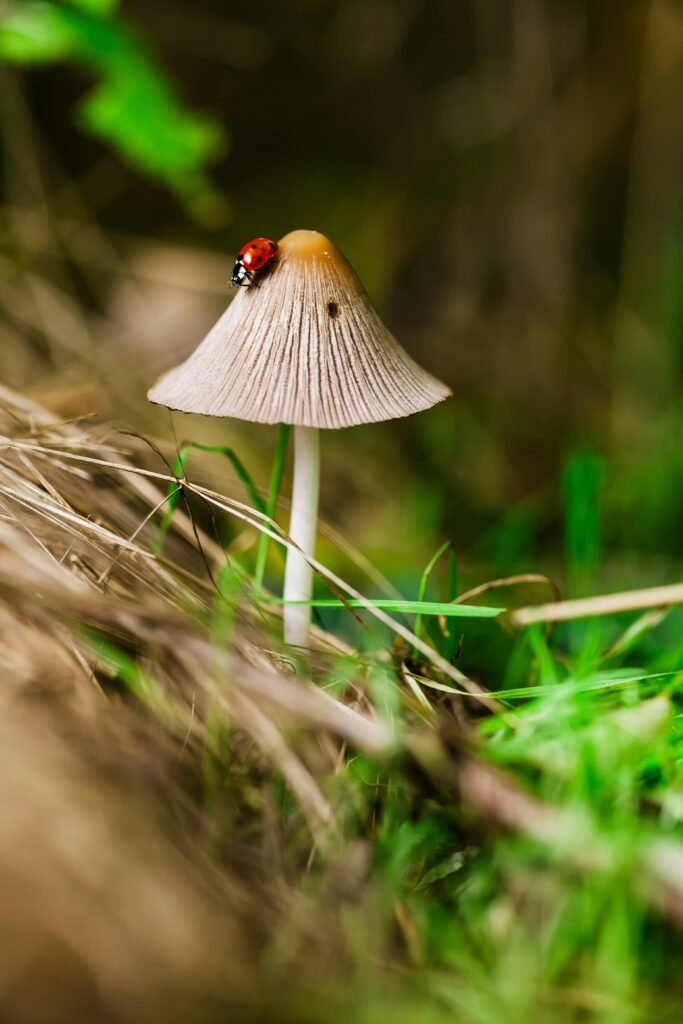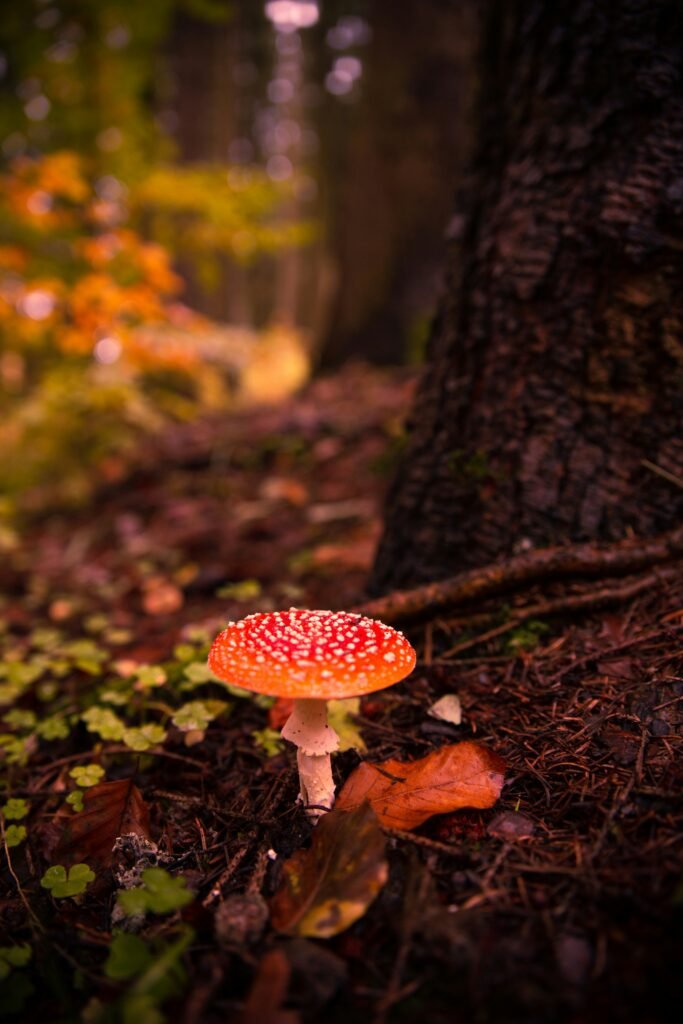Have you ever wondered what would happen if your furry companion accidentally ingested a wild mushroom? It’s a worrisome thought, but one that pet owners occasionally have to face. In this article, we will explore the potential dangers and consequences of such a scenario, as well as provide you with essential information on how to keep your beloved pup safe. So, if you’ve ever found yourself pondering, “What if my dog just ate a wild mushroom?” – fret not, my friend, for we’ve got you covered.
Identify the Mushroom
If your dog has just eaten a wild mushroom, it is crucial to identify the type of mushroom as soon as possible. Some mushrooms can be highly toxic and pose a serious risk to your dog’s health. By identifying the mushroom, you can better understand the potential dangers and take appropriate actions.
Common Dangerous Mushrooms
There are several mushrooms that are commonly found in the wild and known to be dangerous to dogs. These include the Amanita genus, Death Cap, Destroying Angel, and False Morel. These mushrooms contain toxins that can cause severe illness or even be fatal to your furry friend.
Symptoms of Mushroom Poisoning
Mushroom poisoning can lead to a wide range of symptoms, depending on the specific toxins present in the mushroom. Some common symptoms to look out for include gastrointestinal issues such as vomiting, diarrhea, and abdominal pain. Other symptoms may include neurological problems like seizures, tremors, or disorientation. In some cases, mushrooms can also cause liver or kidney damage.
Immediate Actions
When you discover that your dog has ingested a wild mushroom, it is essential to take immediate action to minimize the potential harm.
Stay Calm
While it can be frightening to realize that your dog has eaten something potentially dangerous, it is crucial to stay calm. Panicking can impair your ability to make rational decisions and respond effectively to the situation. Take a deep breath, and remember that there are steps you can take to help your dog.
Induce Vomiting if Advised by a Professional
In some cases, inducing vomiting can be an appropriate immediate action to help remove the mushroom from your dog’s system. However, it is essential to consult with a veterinarian or a professional poison control center before attempting to induce vomiting. They will be able to provide specific guidance based on your dog’s health condition and the type of mushroom ingested.
Call Your Veterinarian or Poison Control
It is crucial to seek professional advice and guidance when your dog has ingested a wild mushroom. Call your veterinarian or a poison control center specializing in animals immediately. They can provide you with the necessary information and steps to take, specific to your dog’s situation.

Observe Your Dog
After taking immediate actions, it is essential to closely observe your dog for any signs of mushroom poisoning.
Watch for Symptoms
Keep a close eye on your dog for any symptoms that may indicate mushroom poisoning. These can include vomiting, diarrhea, excessive drooling, weakness, seizures, or disorientation. It is essential to note any changes in behavior or physical state, as this information will be crucial for your veterinarian’s evaluation.
Take Note of Time and Quantity Consumed
If possible, try to recall the exact time your dog ingested the mushroom and estimatethe quantity. This information will provide vital insights to the veterinarian regarding the potential severity of the poisoning. Remember, the more precise the information you can provide, the better it will be for your dog’s treatment.
Collect a Sample of the Mushroom
If you can do so safely, collect a sample of the mushroom your dog ate. Place it in a plastic bag or container for identification. While it is crucial to avoid direct contact with the potentially toxic mushroom, having a sample can be helpful for accurate identification and determining the best course of treatment.
Veterinary Consultation
Contacting and consulting with your veterinarian is an absolute must when dealing with the ingestion of a wild mushroom by your dog.
Call Your Veterinarian
Notify your veterinarian about the situation as soon as you can. Explain the details of the incident, including the type of mushroom ingested (if known), the time and quantity consumed, and any observed symptoms. Your veterinarian will use this information to assess the potential risks and provide appropriate guidance.
Provide Necessary Information
Be prepared to provide as much information as possible to your veterinarian. This includes any previous medical conditions or allergies your dog may have, current medications or supplements they are taking, and any recent changes in their behavior or overall health. The more information you can provide, the better equipped your veterinarian will be to diagnose and treat your dog.
Follow Their Instructions
Listen carefully to your veterinarian’s instructions and follow them diligently. They may advise you to bring your dog in for an examination, to induce vomiting at home with hydrogen peroxide, or to administer activated charcoal. It is crucial to comply with their recommendations to ensure the best possible care for your beloved pet.

Toxic Mushroom Species
Certain mushroom species are known to be particularly toxic and can cause severe harm to dogs.
Amanita Genus
The Amanita genus is notorious for containing highly toxic mushrooms. Some of the species within this genus, such as the Death Cap and Destroying Angel, produce deadly toxins that can lead to organ failure and even death in dogs. These mushrooms are often found in wooded areas or near trees and should be avoided at all costs.
Death Cap
The Death Cap, scientifically known as Amanita phalloides, is a highly toxic mushroom that can be lethal to dogs. It contains toxins that cause severe gastrointestinal distress and can lead to liver failure. The Death Cap is often found around oak, chestnut, and beech trees, and its appearance resembles that of edible mushrooms, making it particularly dangerous.
Destroying Angel
The Destroying Angel, scientifically known as Amanita bisporigera, is another extremely toxic mushroom found in North America. It contains a potent toxin that affects the liver and kidneys, leading to organ failure. It is essential to keep your dog away from this mushroom if you come across it during walks or outdoor activities.
False Morel
The False Morel, scientifically known as Gyromitra esculenta, is a mushroom that resembles the edible Morel but is highly toxic. It contains a toxic compound called gyromitrin, which can cause severe illness and even be fatal if ingested. It is essential to be cautious and prevent your dog from consuming any mushrooms that resemble the False Morel.
Symptoms of Mushroom Poisoning
The symptoms of mushroom poisoning can vary depending on the type of mushroom ingested and the specific toxins it contains. However, there are some general symptoms to be aware of.
Gastrointestinal Issues
Mushroom poisoning can often lead to gastrointestinal problems such as vomiting, diarrhea, abdominal pain, and loss of appetite. Your dog may exhibit signs of discomfort, discomfort, and may avoid food and water.
Neurological Problems
Certain toxic mushrooms can affect the nervous system and cause a range of neurological issues. These can include seizures, tremors, disorientation, excessive drooling, muscle weakness, or difficulty walking. If you observe any of these symptoms in your dog, it is crucial to seek veterinary care immediately.
Liver or Kidney Damage
Some mushrooms contain toxins that can cause significant damage to the liver or kidneys. Signs of liver or kidney damage may include jaundice, dark urine, pale gums, excessive thirst or urination, and general weakness. If you notice any of these symptoms, it is important to consult your veterinarian promptly.

Treatment Options
The treatment options for mushroom poisoning depend on the severity of the poisoning and the specific toxins involved. Always seek veterinary care for proper diagnosis and treatment.
Emesis (Induce Vomiting)
In some cases, if the ingestion has occurred within the last two hours, your veterinarian may recommend inducing vomiting to remove the mushroom from your dog’s system. This is typically done with the administration of hydrogen peroxide, but should only be done under veterinary guidance.
Activated Charcoal Administration
Activated charcoal may be given to your dog to help absorb the toxins and prevent further absorption in the gastrointestinal tract. It is used to minimize the impact of ingested toxins and can be administered orally or through a feeding tube, depending on your dog’s condition.
Fluid Therapy
Potentially toxic mushrooms can cause dehydration and electrolyte imbalances in dogs. Fluid therapy may be necessary to maintain hydration, restore electrolyte balance, and support vital organ function. Intravenous fluids are commonly used for this purpose.
Supportive Care
Supportive care is crucial in managing mushroom poisoning in dogs. This may include medication to control symptoms such as seizures or tremors, anti-nausea medication to alleviate gastrointestinal distress, and supportive measures to protect and support liver and kidney function during their recovery.
Preventing Mushroom Ingestion
Prevention is always better than cure when it comes to mushroom ingestion. Here are some steps you can take to minimize the risk to your dog.
Maintain a Close Watch on Your Dog
Keeping a close eye on your dog, especially during walks or outdoor activities, can help prevent them from ingesting mushrooms. Always supervise your dog and discourage them from eating anything they find on the ground.
Train Your Dog Not to Eat Unknown Objects
Teaching your dog the “Leave it” or “Drop it” command can be invaluable in preventing them from consuming unknown or potentially dangerous objects, including mushrooms. Positive reinforcement training can help them understand what is safe to eat and what should be avoided.
Remove Wild Mushrooms from Your Yard
If you have wild mushrooms growing in your yard, it is crucial to remove them promptly. Regularly inspect your yard and remove any mushrooms you find to prevent your dog from accidentally ingesting them.
Avoid Walking in Areas with Potential Mushroom Growth
When taking your dog for walks, try to avoid areas where mushrooms are known to grow or are commonly found. Stick to well-maintained paths and avoid wooded areas where mushrooms are more likely to be present.

Less Dangerous Mushrooms
While many wild mushrooms are toxic and potentially harmful to dogs, there are some species that are relatively safe for them to consume.
Safe Wild Mushroom Species for Dogs
Some safe wild mushrooms that dogs can consume include the Puffball mushroom, chanterelles, and oyster mushrooms. However, it is vital to exercise caution and only allow your dog to consume mushrooms that have been properly identified by an expert.
Edible Mushrooms for Dogs
There are some commercially available edible mushrooms that are safe for dogs and can even provide nutritional benefits. These include shiitake, maitake, and portobello mushrooms. However, it is essential to remove any seasoning or flavorings and cook them thoroughly before offering them to your dog.
Conclusion
If your dog has ingested a wild mushroom, it is important to take immediate actions and seek professional advice. Stay calm, induce vomiting if advised, and call your veterinarian or a poison control center specializing in animals. Observe your dog for symptoms, collect a sample of the mushroom if possible, and consult your veterinarian. By preventing mushroom ingestion and promptly seeking help, you can ensure the safety and well-being of your beloved dog. Always remember that prevention is key in keeping your dog safe from the potential dangers of wild mushrooms.

